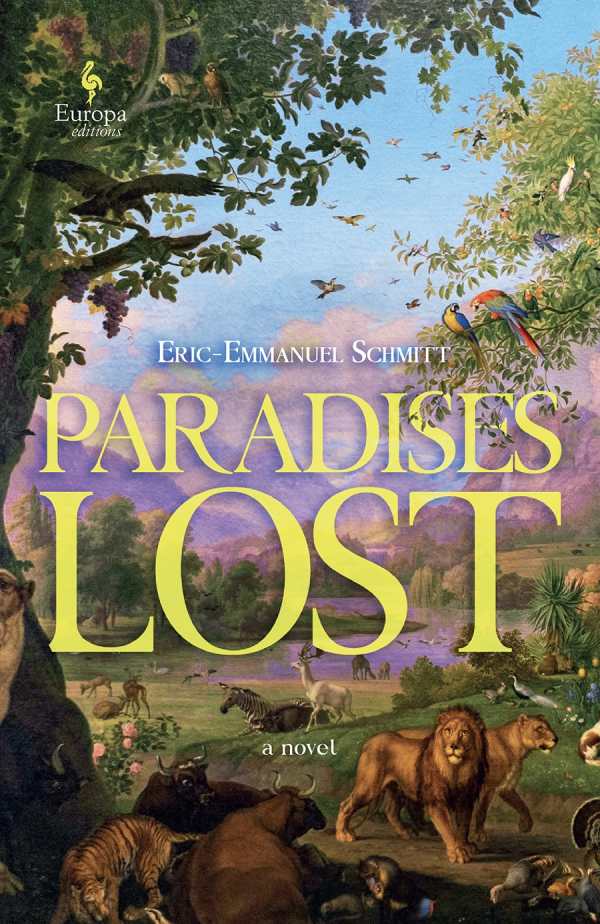Paradises Lost
The first tome in an epic series set to cover the span of human history, Eric-Emmanuel Schmitt’s riveting novel Paradises Lost introduces an immortal who’s grown weary of human foibles, but who still recognizes the wondrous potential in community.
Known in multiple mythologies as the man who survived a world-consuming flood, Noam achieved immortality by accident, after being struck by lightening. Before that, he was the son of a respected chief, living in an idyllic community beside a worshiped lake. But his childhood respect for his father’s innovations gave way to disillusionment when his father claimed Noura, whom Noam loved, as his own. He retreated to the wilds, where his uncle, Barak—a gentle giant––taught him the benefits of depending on nature and chipped away at his xenophobia toward other clans. Challenging his father for the chief’s spot, he envisioned a new, more equitable future for his people.
But then the flood came.
Though its scope is grand, this series opener rests most in the Neolithic period, introducing Noam’s origins and hinting at adventures to come. Footnotes suggest grandiose future encounters with historical greats, some of whom Noam credits himself with influencing, including Jean-Jacques Rousseau. There are peeks at his present in the climate-changed world and hints at future confrontations with terrorists too.
Still, herein, the formation and maturation of Noam’s worldview—cultivated and weathered over “millennia [spent] witnessing technological, biological, and medical progress”—is the primary concern. He “does not idealize the ancients’ teaching and harbors no nostalgia.” Forced to persist in state of “human emptiness,” he thinks most of Noura, who was ““infinite women, one day submissive, another tyrannical, lascivious, morose, excited”—and, to him, irreplaceable.
Ambitious and engrossing, Paradises Lost is a magnificent series opener that introduces the man and the myth behind the story of Noah and the flood.
Reviewed by
Michelle Anne Schingler
Disclosure: This article is not an endorsement, but a review. The publisher of this book provided free copies of the book to have their book reviewed by a professional reviewer. No fee was paid by the publisher for this review. Foreword Reviews only recommends books that we love. Foreword Magazine, Inc. is disclosing this in accordance with the Federal Trade Commission’s 16 CFR, Part 255.

